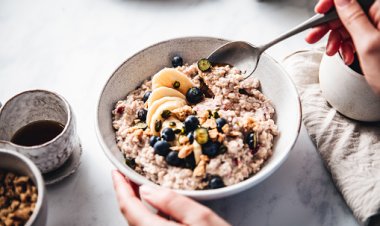How Much Sugar Is in a Can of Soda?
How Much Sugar Is in a Can of Soda? Lacking nutritional value, prevalent beverages like cola contain added sugars.

How Much Sugar Is in a Can of Soda? Lacking nutritional value, prevalent beverages like cola contain added sugars. Consuming excessive amounts of added carbohydrates can lead to weight gain and chronic disease. A 12-ounce can of Coke contains 39 grams of sugar, which is more than 80 percent of the daily sugar intake recommended for a healthful diet.
According to the U.S. Department of Health and Human Services (DHHS), the average American consumes approximately 17 teaspoons of added sugar daily, a significant portion of which comes from beverage consumption. While the naturally occurring sugar in fruits provides beneficial carbohydrates, the added sugars found in cola, fruit juices, bottled iced teas, and energy and sports beverages have been linked to an increased risk of obesity and type 2 diabetes.
Learn more about the sugar content of soda and other popular beverages, the health hazards associated with excessive consumption, and ways to reduce your sugar intake. Here are defining of How Much Sugar Is in a Can of Soda.
How Much Sugar Is in a Can of Soda?
The amount of added sugar you can consume safely varies based on your age, weight, and biological sex. Single servings of sodas and other sweetened beverages frequently contain the recommended daily sugar intake for Americans, and sometimes exceed it.
The majority of the calories in these beverages are "empty," which means they have little to no nutritional value. Even the prospective health benefits of certain beverages, such as the vitamins in citrus juice and the urinary tract health benefits of cranberry juice, are diminished by their excessive sugar content.
The table below depicts the amount of sugar contained in a 12-ounce serving of popular beverages, which may be smaller than what most people consume.
| Drink | Grams | Teaspoons | Calories |
|---|---|---|---|
| Coca-Cola | 39 grams | 10 teaspoons | 140 |
| Orange soda | 49 grams | 12 teaspoons | 199 |
| Sparkling juice (citrus) | 23 grams | 6 teaspoons | 115 |
| Sports drink | 20 grams | 5 teaspoons | 97 |
| Sweetened bottled iced tea | 31 grams | 8 teaspoons | 119 |
| Vitamin-infused water | 20 grams | 5 teaspoons | 79 |
| Sweetened cranberry juice cocktail | 45 grams | 11 teaspoons | 205 |
| Energy drink | 38 grams | 10 teaspoons | 160 |
| Apple juice | 38 grams | 10 teaspoons | 159 |
| Coconut water | 21 grams | 5 teaspoons | 99 |
Recommended Sugar Intake
Sugar is a nuanced ingredient and not all types of sugar are inherently unhealthy. There are two different types of sugar:
- Naturally occurring sugars are found naturally in foods like fruit (fructose) and milk (lactose).
- Added sugars are sugars or sweeteners that are added to foods and beverages during processing, or while you're preparing them such as adding sugar to your coffee.
According to the American Academy of Nutrition and Dietetics, naturally occurring sugars such as fructose and glucose found in fruit, dairy, and certain vegetables provide energy-boosting carbohydrates. The health sugars can also add texture to cuisine, balance acidity with sweetness, and satiate your sweet tooth.
The organization adds, however, that the body interprets naturally occurring sugars and added sugars as identical, which can lead to weight gain. The majority of added sugars and nonnutritive sugars, also known as "high-intensity sweeteners," have no nutritional value and pose a variety of health hazards. The consumption of added carbohydrates is linked to obesity, type 2 diabetes or prediabetes, inflammation, and cardiovascular disease.
The American Heart Association (AHA) recommends that women consume no more than six teaspoons of added sugar per day (approximately 25 grams or 100 calories) and that men consume no more than nine teaspoons (approximately 38 grams or 150 calories) of sugar per day. In addition, the AHA recommends that children ages 2 to 18 consume less than six teaspoons per day.
Also read: Energy Density and the Foods You Eat
Both the Department of Health and Human Services and the United States Department of Agriculture 2020–2025 Dietary Guidelines for Americans recommend consuming no more than 10% of daily calories from added sugars, which exceeds the American Heart Association's recommendation. According to current USDA guidelines, a healthful diet consisting of 2,000 calories per day for weight management would permit up to 200 calories of added sugars per day. A number of health professionals have cautioned that 10% of daily caloric from added sugar is too high to be considered healthful.
These recommendations do not apply to naturally occurring carbohydrates in foods, such as fructose in fruits. It is essential to know how to identify added carbohydrates, as they exist in a variety of forms. Be sure to read the Nutrition Facts labels attentively and search for the names of concealed added sugars, such as high-fructose corn syrup, dextrose, fructose, and sucrose.












